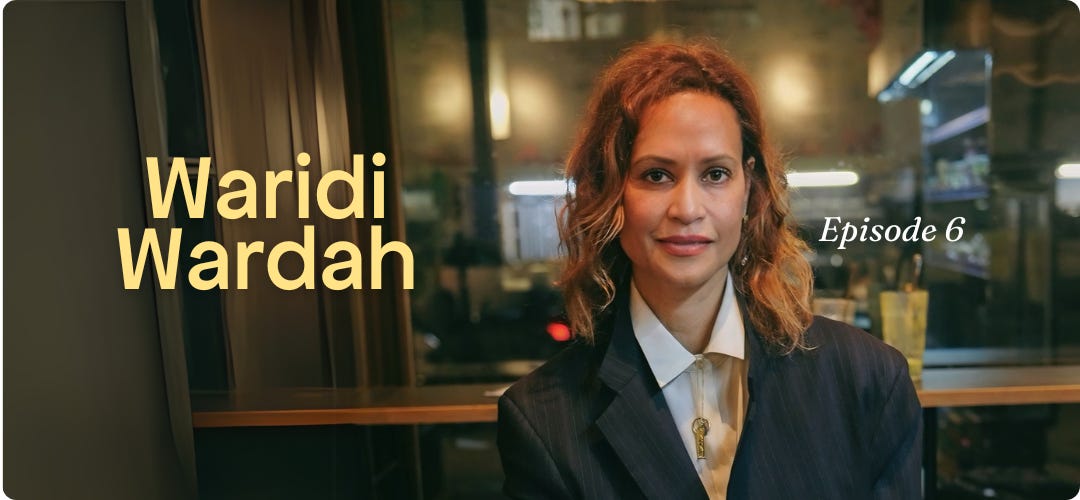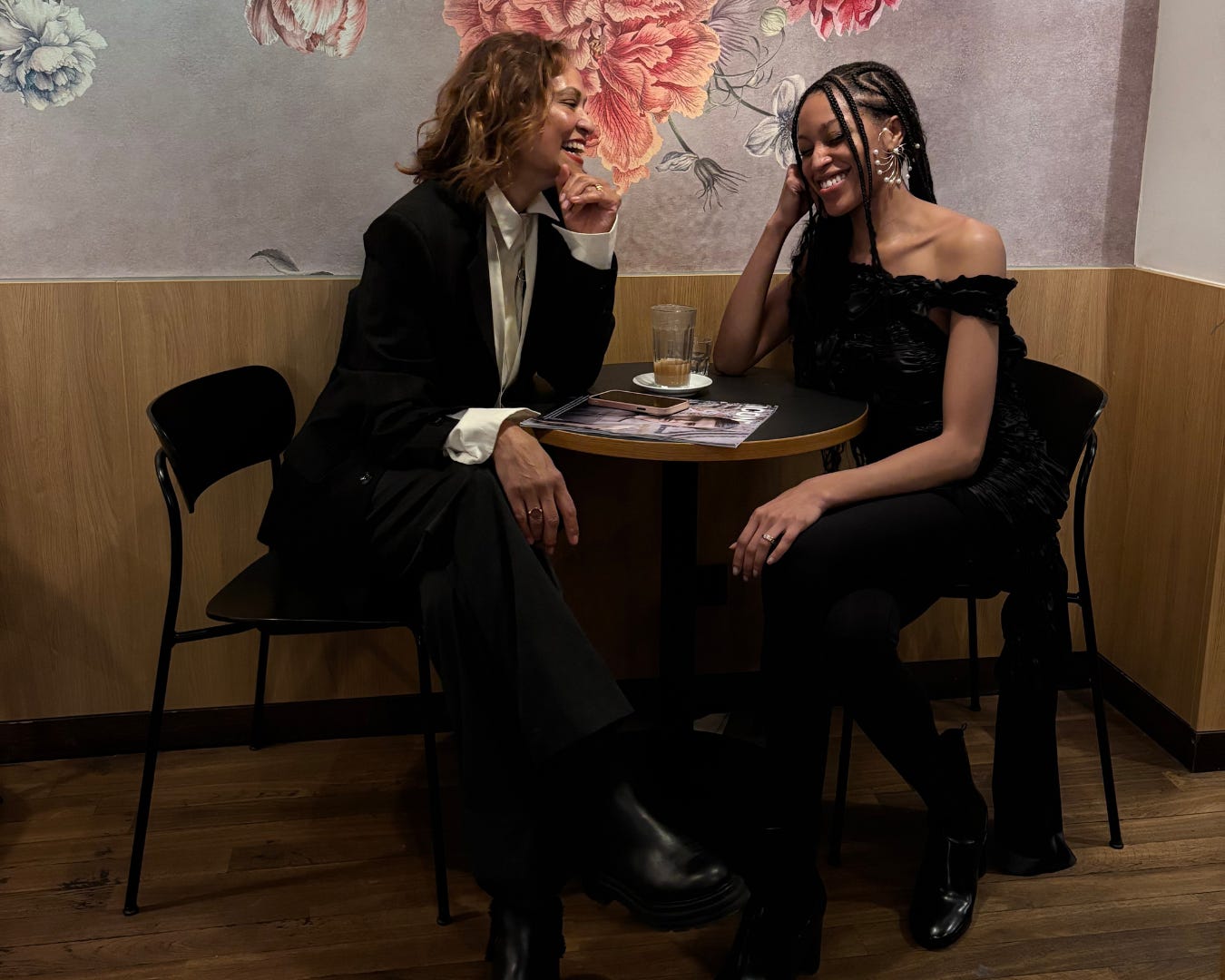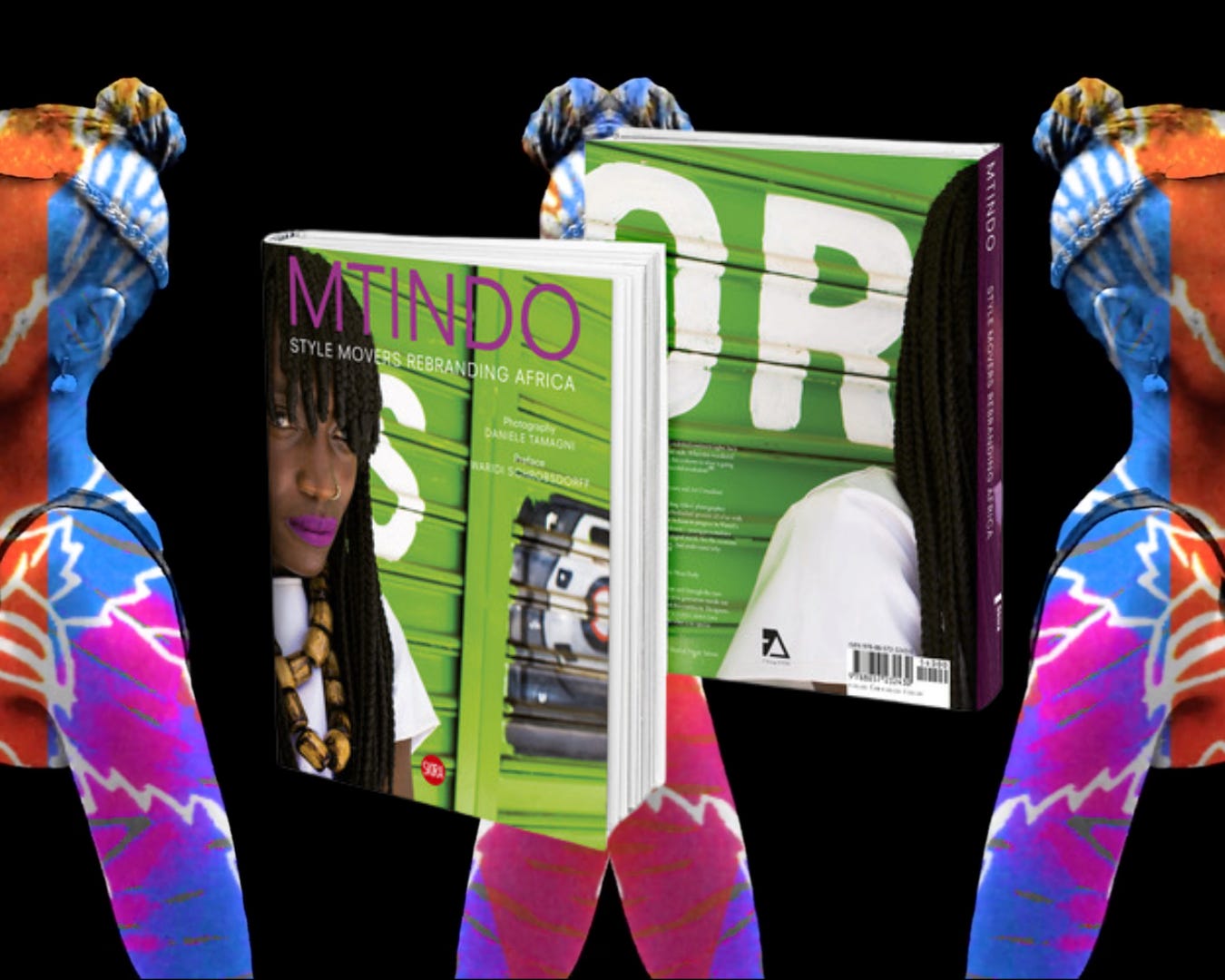🤝 Späti Stories #7: Meet Waridi and Jazz: Women Uplifting Women in Berlin
How Berlin's multicultural fabric creates the perfect backdrop for talented women to find, mentor, and inspire each other.
For our next episode, we're cooking up something special that we've wanted to share since the beginning—the stories behind Spätis and their owners. Do you have a favorite Späti in Berlin? Please let us know in the comments.
🎧 Listening to Nao - Woman ft. Lianne La Havas
When we were teenagers, teen magazines bombarded us with headlines on "How to Get the Guy" and "Beauty Tips He'll Love"—as if our sole purpose was to attract male attention. We rarely saw articles about women's achievements or innovations. Books like Caroline Criado Perez's "Invisible Women" revealed how this lack of representation creates real-world biases.
We realized we didn't just lack female role models—society had systematically hidden them from view. The internet finally gave us access to women's stories that traditional media had failed to tell: mathematicians, politicians, and artists who had been there all along.
In our last episode, we explored how the generation of women before us created the space for us to be who we are now—to vote, to pursue different careers, to have choices. As we continue celebrating Women's Month, this episode explores female representation and how role models can have a profound impact on women's lives.
We chatted with Waridi Wardah, who mentors women in the fashion industry, and Jazz Ameinah, a model and artist who was mentored by Waridi. We met them together and witnessed the deep mutual respect they share—a beautiful example of how representation and mentorship create ripples across generations and continents, all finding common ground in Berlin.
Grab a drink and join us to learn more about their experiences working together in Berlin.
Waridi Wardah, born in Kenya and a Berlin resident for over 30 years, is the founder of FA254, a platform empowering African designers in the global fashion industry. A former model, Vogue contributor, and member of the German Fashion Council, she now dedicates herself to mentoring creative talents across Berlin and beyond.
We asked Waridi where in Berlin feels special to her. She offered two café options - the iconic Schwarzes Café in Charlottenburg and CARAS Café on Kudamm. With CARAS kindly permitting us to film, we headed there on a winter evening in February. The sun was setting around us as we entered the warm glow of CARAS, where the scent of coffee provided a cozy contrast to the commercial bustle of Kudamm outside. The café has been a quiet haven amidst the busy commercial district since 1998. As darkness fell over Berlin, we immediately spotted Waridi and Jazz laughing together over drinks when we arrived.
It was cold outside, but the atmosphere was warm and friendly as we caught up before starting the interview. Though the café was livelier than we expected for a Tuesday evening, our trusty microphones saved the day. We settled in the quietest corner near the fridge and began our conversation.
Waridi moved to Berlin in 1993 for love, and stayed. She's been promoting African brands and designers for years, and we were curious about how she became that bridge between continents.
"After arriving in Berlin in 1993, I worked as a model in the fashion industry and shared my knowledge with young designers from Esmod Fashion School. I became inspired by these designers," she explained. "I had always been in the spotlight, showcasing the beautiful pieces as a model, but then I became interested in the behind-the-scenes work—helping designers tell their stories."
This curiosity led her to research African fashion heritage, opening her eyes to the continent's vibrancy and talent. "I noticed a gap in their understanding—what a collection is, what their brand identity is, and who their target audience is. I wanted to fill that gap and create a bridge between African and German fashion worlds."
This involvement naturally led Waridi to start a mentorship program supporting and promoting African creatives and their heritage. She worked with designers through a selection process, eventually choosing brands ready to enter the German market. In recent years, her approach has evolved to working directly with various African fashion weeks, particularly the Hub of Africa Fashion Week in Addis Ababa, where she's collaborated for a decade.

Having been in Berlin since the 90s, Waridi has witnessed significant changes in the fashion industry both globally and locally. When asked about the obstacles in her career, she offered a thoughtful perspective: "Challenges change depending on your mindset."
"As a model, I learned not to take it personally if I didn't get a job. It's not that I'm lacking—it's just that I may not fit what the client is looking for. It's not about me; it's about them," she shared with the wisdom of experience. "Since 2013, I've been working with African designers, using my knowledge to understand the hurdles on both sides and develop solutions together."
On a personal level, Waridi faced her own struggles related to body image. "The challenge I had was with my body because I'm not flat-chested," she recalled. "Even when designers wanted me, sometimes I didn't get jobs because of my chest. If they really wanted me, they had to tape my breasts." She noted how the industry has evolved:
"Back then, it was either someone like me or someone like Naomi. Now, since around 2018, there are more models of different colors and sizes. Body positivity has changed things. There's also a greater acceptance of women over 40. It's becoming broader and more open."
With over a decade of mentoring African creatives, Waridi has encountered many powerful stories. One particularly emotional moment occurred in 2021 when she arranged for eight Ethiopian designers to showcase their work at Berlin Fashion Week. "After all the preparation—putting press releases together and organizing a fashion show, not just a fair—the designers couldn’t come because they couldn’t get visas from the German embassy," she shared, her voice filled with emotion. "It was shocking, especially since we had been in talks with the Ethiopian embassy to support their visa applications."
This highlighted a significant barrier: "It's not easy for Africans to get visas because there’s this assumption that they want to leave their country permanently, coupled with global immigration concerns. Even when they do get to come, they’re often given such limited time—sometimes just three days. That’s not enough to really understand the market or fully experience Fashion Week."
The situation required creativity and resilience: "We had to show videos of the designers speaking before the show started, and one person had to travel with all their work without the designers themselves being there. It felt wrong and unjust."
To challenge common stereotypes of Africa, Waridi collaborated with Daniele Tamagni to create MTINDO, a book that presents the continent in a different light. "I wanted to use fashion as a means to communicate Africa’s vibrancy—not just highlight poverty, disease, or corruption," she explained. "I aimed to showcase young people who are driving change in their countries and across the continent."
The book's format was intentional: "I didn't want something that people would just read, scroll through, and then forget. I wanted something tangible." The resulting publication featured ten personalities from Kenya, her mother country, representing "millions of young people thriving and innovating in Africa."
When we shifted the discussion to female mentorship, Waridi’s passion shone through, especially when talking about her work with Jazz, who was present during our interview.
"As a woman and former model, I didn't have someone to guide me. When I see talent in young women, whether models or designers, I want to open doors for them - not just through networking, but by helping them connect with their own power, to believe in themselves and go for it," she explained, her eyes lighting up. "It's my passion to see women really going for it and making it happen."
Waridi herself did not have mentors in her youth, but now she relies on other women to keep her grounded and connected to her essence. "I do have women I speak with and trust, who understand my work and can see or assess where I might be struggling. They motivate me to work through those challenges and find solutions, bringing me back to what I believe in."
After decades of navigating Berlin's fashion world, Waridi has plenty of wisdom to share. When discussing her mentorship with Jazz specifically, her face lit up with pride. "What was really important for me in mentoring was seeing the seriousness, passion, and dedication Jazz brought. She was very professional, she really listened, and she took action. I wouldn't call it homework, but if I suggested something, even on my way back home, she'd be sending me WhatsApp messages showing she was working on it."
Their relationship evolved from formal mentorship to a lasting partnership with ongoing support. "We worked together on photoshoots, runway walking, and developing her unique personality. When she began to confidently walk in shows, I would watch her and provide feedback. Now, I just go, 'Wow, you're rocking it! I'm so proud of you.' She's participating in multiple shows each season, and she keeps me updated on her latest work, which I happily share." Her success reflects the power and impact of meaningful mentorship.
When asked what advice Waridi would give to young Black women in Berlin, she responded, "Berlin is an open city with a vibrant individuality, offering space to create and connect. The most important thing is to believe in yourself. No matter what you want to pursue, there is room for you to make it happen."
The creative environment of the city resonates with her own approach: "Berlin is full of ideas, and I have plenty of my own, so it feels like you blend right in. It's like baking your own cake and then tasting it." Naturally, we loved this delicious comparison.
For those interested in discovering young African designers based in Berlin, Waridi enthusiastically recommended several names: "There's Emeka, whose suits are made in Kenya from upcycled materials. There's Return to Sender, working with discarded clothing. Dennis Chueni from South Africa but now based in Berlin is a great designer. And Buki, originally from Hamburg but now in Berlin. They all have stores in Kreuzberg”.
When asked how she has changed over her three decades in Berlin, Waridi responded immediately, with simplicity: "I've learned that I am enough. In the modeling and fashion industry, there's often a feeling of not measuring up. My journey in Berlin has taught me to embrace the fact that I am enough."
What gives her hope for Berlin's future? "I recently attended the theater and opera after a long time, and it was wonderful to see them packed with people. This shows that there is strong support for making Berlin a vibrant cultural city—not just focused on diversity and inclusivity, but also for actors, musicians, and beyond fashion. It feels like Berlin is a woman who has rediscovered her motivation, reminding herself of her true identity and potential to be inspired again."
Jazz Ameinah is a model and artist with Jamaican roots, born in California. After living in Southeast Asia for nine years to study, she relocated to Berlin in 2021, where she continues to build her creative career.
Our first impression of Jazz was striking—not just because of her looks, but her aura. Her bright energy was immediately noticeable. While Waridi shared her journey, we caught glimpses of Jazz watching her mentor with unmistakable warmth and enthusiasm. Their mentor-mentee bond was evident from the start.
Jazz shared a fun fact with us—having lived in Southeast Asia for so long, she speaks Thai fluently! We wondered how she ended up in Berlin after traveling across the globe. "I always travel for love and art. I wanted to fully pursue my passion as a model and painter while exploring my heart in Europe. And now I am still here 4 years later creating as a profession," she explained.
When we asked how she met Waridi, Jazz described a pivotal moment in her early Berlin modeling journey. "When you're starting to model or come into a new country, you have to learn about how people approach business, how models present themselves, and I knew nothing about Europe in general," she said.
"I was losing parts of my own identity, trying to become a European-German girl that I would never be. I wasn't sure how to approach the next level when it came to acting and modeling full-time, so I knew I would need a mentor."
Jazz put this intention on her vision board and continued working. Though new to Fashion Week, she sought opportunities to connect with the right people. At her first casting, she made it to the final stage but wasn't selected. Instead of giving up, she felt compelled to attend the show anyway.
"I really heard God saying, 'Go to the show.' I was still invited to go, and present yourself and learn. In this craft, there's always so much to learn," she reflected. "I wanted to see what was happening in the industry, so I went with positive energy."
After the show, Jazz approached the designer to express gratitude for being part of their vision thus far. On her way out, still energized by the experience, she encountered Waridi in the audience - it’s interesting to see how destiny works sometimes.
"We had this beautiful connection. If I hadn't come to the show, I would have missed this moment," Jazz said. When she mentioned wanting to learn from someone in the industry, they began coaching sessions together.
"She fine-tuned my craft. She could see a version of myself that I wasn't necessarily confident in yet and helped me find my DNA," Jazz recalled. "Most importantly, she taught me not to lose myself in a new industry, but to embrace who I am—Jamaican, American, now in Germany—and present myself professionally while remaining authentic."
This mentorship transformed Jazz's career. She learned her personal runway walk, how to present herself professionally, adapted her style to the European market, and updated her portfolio. With these skills, she has walked in three to four shows each Fashion Week season for the past three seasons.
"Now I work as a commercial and editorial model with brands like NYX Cosmetics, Congstar, Sparkasse, Adidas, Nike, Zalando, Puma, and many more," she shared proudly. "Sometimes it just takes surrounding yourself with people who have a vision for and with you."
Being a model with such a diverse background comes with unique challenges. "I grew up between California, Thailand, and my Jamaican roots—three vastly different cultures with beauty standards I never quite fit," Jazz explained.
"In some, my skin is too dark, while in others I'm too tall or thin. My natural hair is a curly afro with locs, and my sense of style is bright and bold like my culture."
She often has to bring her own hair products or foundation to sets in Europe, as makeup artists haven't always worked with her specific look. In Asia, she would bring her own shoes because her foot size wasn't standard for the industry.
"It's more important that I feel confident and comfortable with my final styling, so coming prepared is essential," she advised. "Show that you can still do a wonderful job no matter the circumstances, and share your experience with your agency afterward for better experiences in the future."
For young female models moving to Germany, Jazz offered practical advice: "Start on social media; don't wait for agencies or brands to reach out. Create your own vision and use digital platforms to amplify your talents. If they can't find you, how can they book you?"
She emphasized collaboration with local talent, trading skills, and curating campaigns together to build credibility. "Train—get a mentor, work out with models in your network, and take on free opportunities to build your portfolio, community, and skills," she recommended.
"Learn new skills—take movement or dance classes, public speaking courses, try new sports, and fine-tune your passions. You never know when a job requiring a special talent will appear," Jazz noted. "The first casting Waridi pitched me for needed a model who could paint, dance, and had minimal acting skills. Luckily, these were already my passions, making me a perfect fit."
Berlin has transformed Jazz's self-perception. "After being here a few years, I've developed resilience and self-starting abilities. People here are quite eccentric, giving you space to be unabashedly vibrant," she observed. "This city has taught me it's okay to transform with time. Whatever narrative or self-image you have can change as often as you'd like."
Her Berlin journey has fulfilled dreams she once thought distant.
"I dreamt of seeing myself on billboards, acting in commercials, or posing in international campaigns. In just a few years, it has all happened. Trust your calling, even if it's on lands you never dreamt of rooting in."
As Women's Month continues, Jazz left us with a powerful reminder: "There's something that makes all of us unique—our story, culture, and lived experiences. Use that as textiles to weave together your mark on this world. Whether in fashion or the arts, you have something to share and you're worthy of taking up space. Most of all, if the space isn't presented to you, create it yourself."
The connection between Waridi and Jazz illustrates the importance of female role models and representation—of women uplifting women across generations, creating purpose and empowering communities.
Their stories started in completely different parts of the world, but having their paths intersect in Berlin shows how this city serves as a stage for meaningful relationships and self-discovery. We hope that you're baking your own cake with Berlin's diverse ingredients and then tasting it—to use Waridi's delicious comparison.
For our next episode, we're cooking up something special that we've wanted to share since the beginning—the stories behind Spätis and their owners. Do you have a favorite Späti in Berlin? Please let us know in the comments.
Baking our Berlin cake with you,
Isabelle and Lua












Lovt 💝